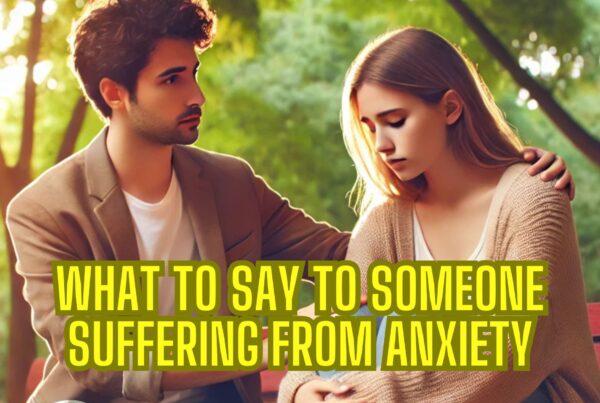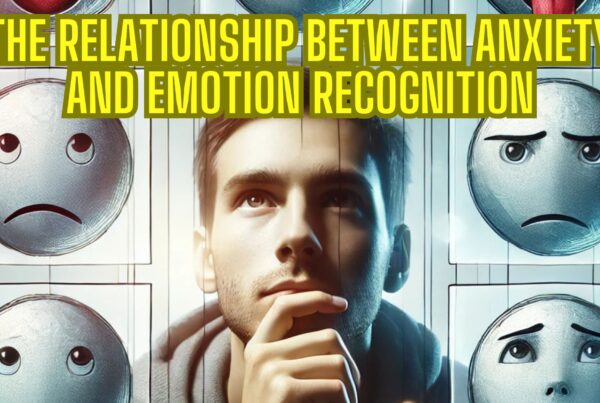Anxiety Management and Coping Strategies
Anxiety is more than just occasional worry or fear. It’s a pervasive feeling that can seep into every aspect of life, often without warning or apparent cause. For millions, anxiety is a daily companion, influencing decisions, relationships, and overall well-being. In this blog, we’ll delve into what anxiety truly is, how it impacts individuals, and unveil practical, evidence-based approaches—including a fascinating recent study—that offer hope and tangible solutions. By the end of the blog, you’ll have a better understanding of anxiety management and coping strategies.
Understanding Anxiety: More Than Just Worry
Anxiety is a natural human response to stress or perceived danger. It’s an evolutionary mechanism designed to protect us by preparing the body to face threats—a response known as the “fight or flight” reaction. However, when this response becomes overactive or misfires without real danger, it can lead to persistent and excessive feelings of anxiety.
The Biological Basis of Anxiety
At the biological level, anxiety involves a complex interplay of neurotransmitters and brain regions:
- Amygdala: This almond-shaped structure processes emotions like fear and anxiety. An overactive amygdala can heighten anxious responses.
- Prefrontal Cortex: Responsible for decision-making and moderating social behavior, it can dampen or exacerbate anxiety signals from the amygdala.
- Neurotransmitters: Chemicals like serotonin, dopamine, and norepinephrine play significant roles in mood regulation. Imbalances can contribute to anxiety disorders.
Types of Anxiety Disorders
Anxiety manifests in various forms, each with unique characteristics:
- Generalized Anxiety Disorder (GAD): Persistent and excessive worry about everyday things.
- Panic Disorder: Sudden episodes of intense fear accompanied by physical symptoms like heart palpitations.
- Social Anxiety Disorder: Intense fear of social situations due to concerns about judgment or embarrassment.
- Phobias: Irrational fear of specific objects or situations, such as heights or spiders.
- Obsessive-Compulsive Disorder (OCD): Recurrent, unwanted thoughts (obsessions) and repetitive behaviors (compulsions).
- Post-Traumatic Stress Disorder (PTSD): Anxiety following a traumatic event.
The Profound Impact of Anxiety on Daily Life
Physical Manifestations
Chronic anxiety can lead to:
- Cardiovascular Issues: Elevated heart rate and increased risk of hypertension.
- Gastrointestinal Problems: Such as irritable bowel syndrome (IBS) and stomach ulcers.
- Weakened Immune System: Making one more susceptible to infections.
Social and Professional Implications
- Avoidance Behaviors: Steering clear of social interactions or opportunities due to fear.
- Strained Relationships: Misunderstandings and withdrawal can create distance between loved ones.
- Reduced Productivity: Anxiety can hinder performance at work or school.
Mindfulness: Harnessing the Present to Alleviate Anxiety
The Science Behind Mindfulness and Anxiety Reduction
Studies have shown that mindfulness:
- Reduces Amygdala Activity: Lowering the brain’s alarm system response.
- Enhances Prefrontal Cortex Function: Improving emotional regulation and decision-making.
- Decreases Stress Hormones: Reducing cortisol levels in the body.
Practical Mindfulness Techniques
Here’s how you can bring mindfulness into your daily life:
- Breathing Exercises: Inhale deeply through the nose, hold for a few seconds, and exhale slowly through the mouth.
- Body Scan Meditation: Lie down comfortably and focus attention on each part of your body sequentially, from toes to head.
- Mindful Walking: Pay attention to the rhythm of your steps, the ground beneath your feet, and the surrounding sounds and sights.
Note, you can download a free mini-mindfulness experience by entering your details here.

Hypnotherapy: Reshaping Perceptions to Combat Anxiety
A Modern Definition of Hypnosis
Hypnosis is a psychological process through which a person’s model of reality can be shifted or altered. It’s not about control or manipulation but about guiding individuals to access their subconscious mind to facilitate change.
How Hypnotherapy Addresses Anxiety
- Uncovering Root Causes: Identifying subconscious thoughts or memories contributing to anxiety.
- Reframing Negative Beliefs: Replacing limiting beliefs with empowering ones.
- Enhancing Coping Mechanisms: Strengthening internal resources to manage stress and anxiety more effectively.
The Study of Relaxation-Induced Anxiety: Choosing Worry Over Calm
A fascinating study titled “Negative contrast sensitivity mediates the relationship between generalized anxiety disorder and relaxation-induced anxiety” explored why individuals with anxiety might resist relaxation practices.

Key Findings
- Participants with GAD experienced increased anxiety during relaxation due to the fear of a sudden negative emotional shift.
- This behavior, called Contrast Avoidance, helps individuals avoid the stark difference between calm and anxious states.
Understanding this phenomenon helps refine therapeutic approaches, making relaxation more accessible to those who need it most.
FAQs
- What is Relaxation-Induced Anxiety (RIA)?
- RIA is a phenomenon where individuals feel increased anxiety during relaxation due to fear of a sudden negative emotional shift.
- How does hypnotherapy differ from traditional therapy?
- Hypnotherapy accesses the subconscious mind to facilitate change, focusing on altering perceptions and thought patterns at a deeper level.
- How does hypnotherapy work?
- Hypnotherapy helps reshape subconscious patterns, reducing anxiety at its roots.
- Can diet alone cure anxiety?
- While diet plays a significant role in mental health, it’s most effective when combined with other treatments like therapy and lifestyle changes.
- Can mindfulness really help with anxiety?
- Yes! Mindfulness rewires the brain to respond more calmly to stress. It can help to become the observer of your thoughts instead of being hooked by them.
- Is mindfulness suitable for everyone?
- Mindfulness can benefit most people, but it’s essential to find practices that resonate personally and to start slowly.
- How long does it take to see improvements in anxiety symptoms?
- It varies per individual. Some may notice changes in weeks, while for others, it may take months. Consistency is crucial.
- Are natural supplements safe for managing anxiety?
- Many find relief with supplements, but it’s vital to consult a healthcare professional to ensure safety and appropriate usage.
Release Hypnosis Melbourne Hypnotherapy
Since 2015, Lawrence Akers has been working under the name Release Hypnosis offering Hypnotherapy and ACT based work to the people of Melbourne or an online service. Based on St Kilda Rd, Release Hypnosis is an easy and convenient location to get to and accessible by the ANZAC station train and tram stop. Release Hypnosis can help with a wide range of presenting issues, and I offer a free 30 minute no obligation discovery call for those who are unsure if hypnotherapy is the right way forward for them.
Book Your FREE 30 Minute Consultation With Release Hypnosis NOW!
You may also like to read:
Hypnotherapy: A Guide to Healing Through the Subconscious
The Neuroscience of Gratitude and Effects on the Brain: Unlocking Mental Resilience
Best Hypnotherapy Resources 2024: Release Hypnosis Top Blogs
What Is The Success Rate of Hypnosis?








